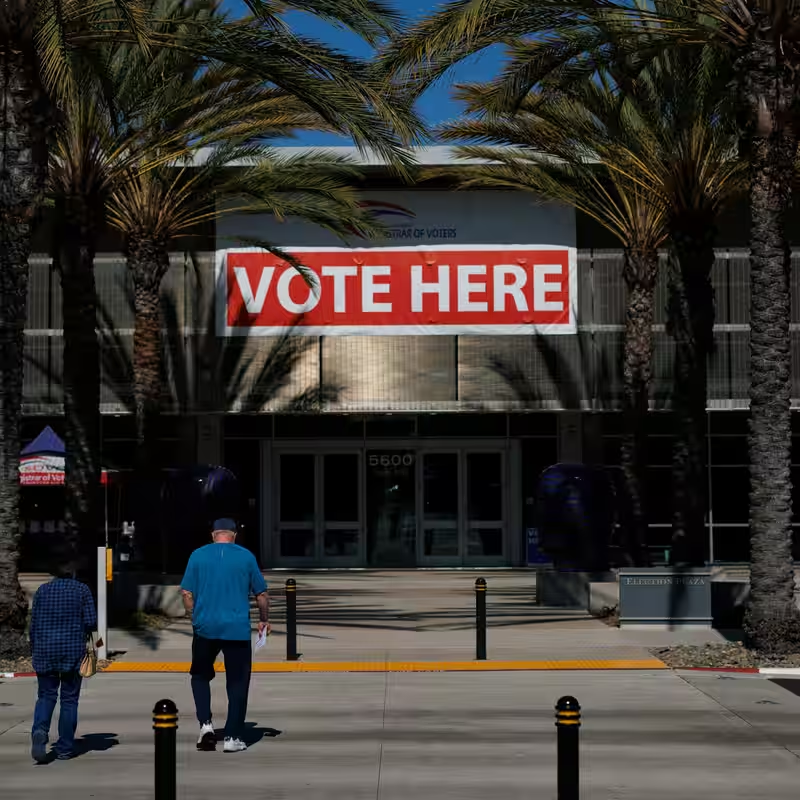California Democrats aren’t waiting for voters to decide—they’re already campaigning for congressional districts that may never materialize. With Proposition 50 on the November 4 ballot, a wave of political jockeying has begun across the state as candidates scramble to claim hypothetical House seats before the new maps are even drawn .
Table of Contents
- What Is Proposition 50?
- Democratic Free-for-All Begins
- Potential Bera vs. Kiley Showdown
- Campaigns Launched in Limbo
- Why This Matters Nationally
- Sources
What Is Proposition 50?
Proposition 50 is a ballot measure backed by Governor Gavin Newsom and California Democrats that would authorize a new round of congressional redistricting. If approved, it would redraw the state’s 52 House districts—potentially creating up to five new Democratic-leaning seats ahead of the 2026 midterms .
The move is a direct counter to Republican-led gerrymandering efforts in states like Texas, where redrawn maps have solidified GOP control. In California, however, the twist is that candidates are acting as if the measure has already passed—launching campaigns, filing paperwork, and even sharing opposition research.
Democratic Free-for-All Begins
“It’s like they’re trying to complete a puzzle where they’re missing a piece,” said Dan Newman, a Democratic strategist and adviser to Governor Newsom .
From Sacramento to San Diego, longtime lawmakers, former candidates, and political newcomers are signaling their intentions. Some have opened campaign bank accounts. Others have rolled out websites with endorsements from local unions and progressive groups—all for districts that don’t officially exist.
Potential Bera vs. Kiley Showdown
One of the most watched potential matchups involves six-term Rep. Ami Bera, a Sacramento-area Democrat and physician. Bera currently represents the 6th District but is openly considering a run in a redrawn 3rd District—currently held by Republican Kevin Kiley .
Under Prop 50’s proposed changes, Kiley’s largely rural, conservative district could absorb heavily Democratic neighborhoods from Placer and El Dorado counties, flipping its partisan balance overnight.
“I’m keeping all options open,” Bera told reporters. “My priority is ensuring California’s voice in Congress reflects its values.”
Campaigns Launched in Limbo
At least a dozen prospective candidates have already filed “exploratory” paperwork with the Federal Election Commission. In Los Angeles County, two former city council members are vying for the same rumored new district in the San Fernando Valley. In the Bay Area, a progressive nonprofit leader has launched a “Draft Me” campaign targeting a potential open seat in Contra Costa County.
Behind the scenes, consultants are mapping voter data, running simulations, and quietly negotiating “don’t run against me” deals—all contingent on Prop 50 passing with a simple majority on November 4.
Why This Matters Nationally
Control of the U.S. House hangs in the balance. Democrats need a net gain of just four seats in 2026 to flip the chamber. If Prop 50 passes and California delivers even three new Democratic seats, it could dramatically shift the national landscape.
Republicans, meanwhile, are calling the measure a “partisan power grab” and have begun funding “No on 50” ads warning of political chaos and wasted taxpayer money.
But for California Democrats, the gamble is clear: better to campaign in uncertainty than be left behind if the map changes overnight.




